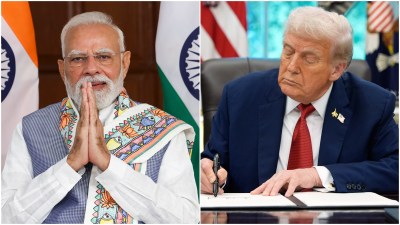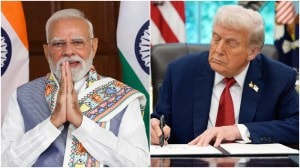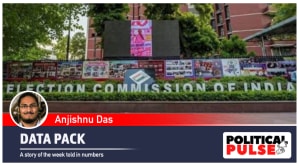The authoritarian fixation on corruption
After almost two decades of describing corruption as the reason for most of the third world’s problems, intellectuals in the West are b...

After almost two decades of describing corruption as the reason for most of the third world’s problems, intellectuals in the West are beginning to question the wisdom of that argument. In a significant article in The Washington Post Moises Naim wrote, ‘‘Today the war on corruption is undermining democracy, helping the wrong leaders get elected and distracting societies from facing urgent problems.’’ Mr. Naim, who is the editor of Foreign Policy argued that the obsession with eliminating corruption ‘‘crowds out the debate on other crucial problems.’’
According to Naim,‘‘Corruption has too easily become the universal diagnosis for a nation’s ills. If we could only curtail the culture of graft and greed, we are told, many other intractable problems would easily be solved. Naim points out that flaws in a country’s educational system or healthcare and stagnating economies do not receive the same attention as corruption scandals. Inevitably, the public’s understanding of what it would take to tackle other national priorities becomes clouded by the corruption obsession.
The ‘‘worst collateral damage’’ of a fixation with corruption, according to Naim, ‘‘is the political instability it can create. Electorates already have many reasons to be disappointed with their elected officials. The corruption curse feeds people’s unrealistic expectations about what it would take to improve their standard of living and set a country on a more prosperous path. Popular impatience, exacerbated by the belief that nearly all those at the top are lining their pockets, unreasonably shortens the time governments have to produce results.’’
Although Naim, who was born in Venezuela and once served as its Trade Minister, cites the example of Latin America where 11 governments fell because of corruption his arguments apply equally to Pakistan. Between 1988 and 1999 no elected civilian government was allowed to complete its term because of alleged corruption. The 1999 military coup that brought General Pervez Musharraf to power was also justified on grounds that Pakistan’s generals were better suited to wage the war against corruption.
As Moises Naim points out, ‘‘There is no doubt that corruption is a scourge. But there is also no doubt that many countries crippled by corruption are not sinking. Hungary, Italy and Poland are just a few examples of countries where prosperity has coexisted with significant levels of corruption. China, India and Thailand are not only not sinking; they are prospering, despite widespread corruption.’’ Of course, Naim’s purpose is not to condone corruption. He seeks only to point out that the elite and intelligentsia of some countries can ignore more fundamental problems while obsessing about corruption. Often, deviation from constitutional governance and frequent ouster of elected leaders still does not bring corruption to an end.
Transparency International is a Berlin-based organization that publishes an annual Corruption Perceptions Index based on surveys ‘‘from 13 independent institutions’’ based on ‘‘the opinions of business people and country analysts.’’In the 2004 Transparency International index, Finland was identified as the world’s least corrupt country and the most corrupt countries were Bangladesh and Haiti. According to TI, ‘‘The index defines corruption as the abuse of public office for private gain, and measures the degree to which corruption is perceived to exist among a country’s public officials and politicians.’’The scores on TI’s index range from 10 (squeaky clean) to zero (highly corrupt). TI considers a score of 5.0 as ‘‘the borderline figure distinguishing countries that do and do not have a serious corruption problem.’’
Pakistan’s rating in the 2003 survey was 2.5 and in 2004 it stood at 2.1. Pakistan was tied in 6th position as the most corrupt country in 2004 whereas it was in 11th position in 2003. The methodology for determining the level of corruption in a country is such that the ranking is less important than the rating. A country can be the worst in a certain year, when fewer nations are surveyed, but move up or down in the rankings because of changes in the number of countries surveyed. Pakistan’s rating, on the other hand, has improved little over the years.
In Pakistan’s case, corruption is a constant factor, which is exaggerated or downplayed according to the political needs of the country’s bureaucracy and generals. The Pakistani establishment uses corruption as an excuse to boot out or denigrate the politicians while covering up the corruption and other ethical lapses of military officers and civil servants.
Honest Pakistanis must carry on their struggle against corruption but anti-corruption crusades have been used by the country’s establishment to deprive the country of democratic governance and popular participation in government. As Naim points out, the obsession with corruption is diverting attention from and preventing debate on many other issues that Pakistanis must address.
The writer is a Visiting Scholar at Boston University




- 01
- 02
- 03
- 04
- 05


























